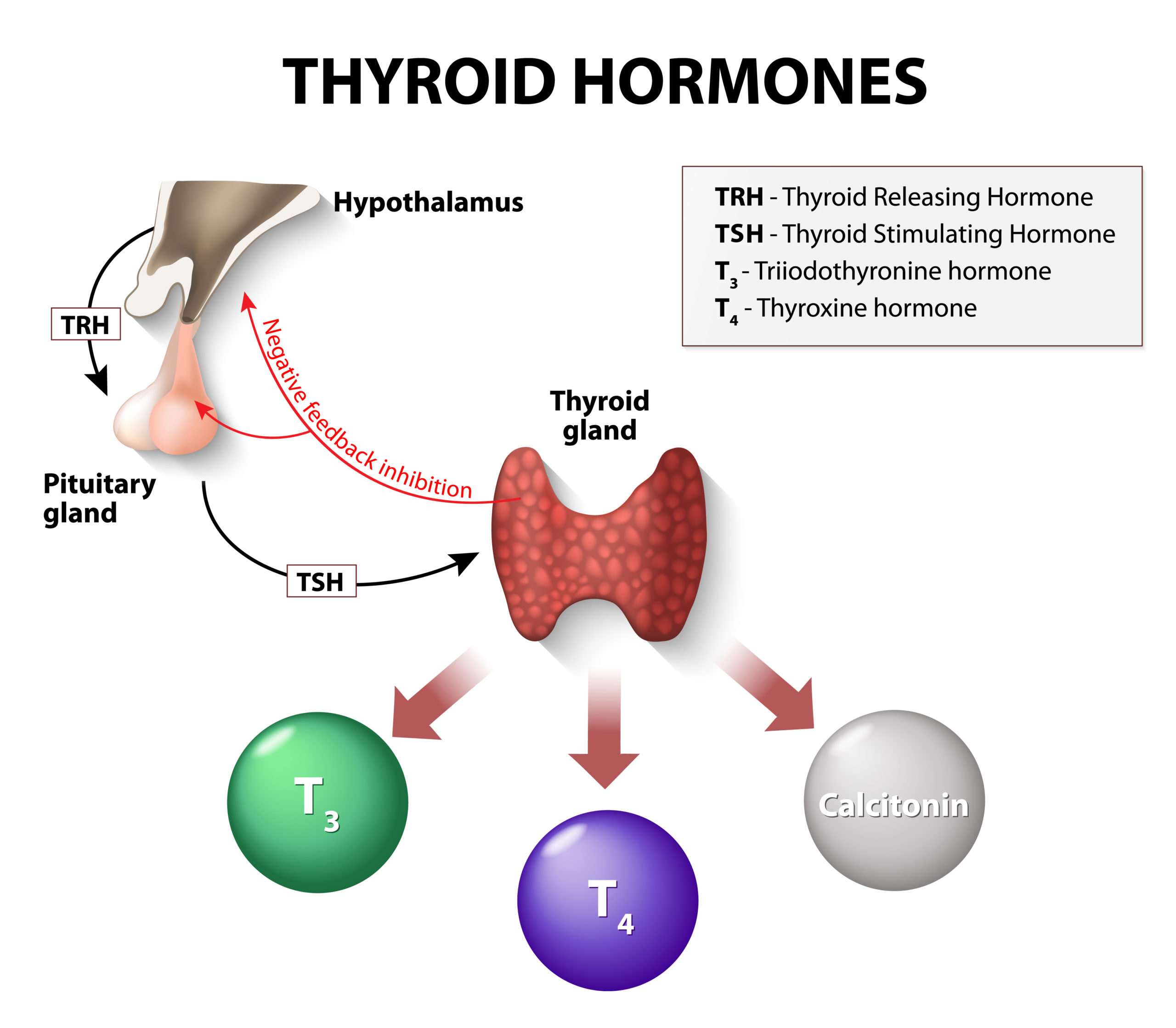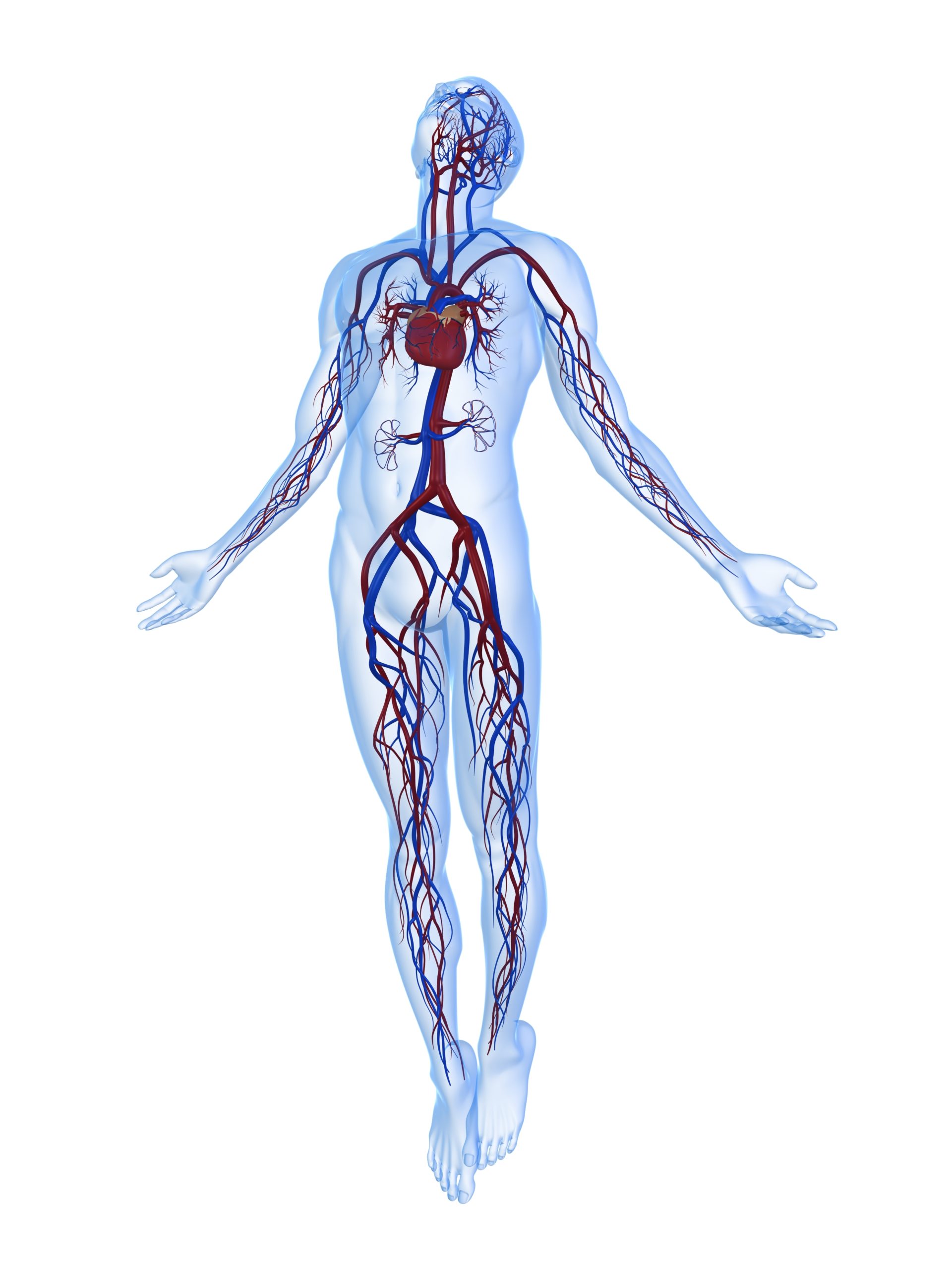Low Thyroid Symptoms but Lab Tests Normal?
Many new patients come to us because they are having symptoms of low thyroid — called hypothyroidism — but other medical providers have told them that there is nothing wrong with them because lab tests are “normal.” We realize how frustrating this can be.
While hypothyroidism can occur at any age in both sexes, it is more common in women, especially when they reach their perimenopausal or menopausal years. Other hormones also wane as we age, such as estrogen, progesterone, and testosterone. And your endocrine system all works together: Imbalances or low levels in one area can affect hormone levels in another.
Symptoms of Hypothyroidism
- Relentless fatigue, even after getting enough sleep the night before
- Weight gain
- Inability to lose weight when following a clean diet and exercising
- Brain fog
- Low body temperature and feeling cold all the time, especially in the hands and feet
- Constipation
- Muscle and joint aches
- Hair loss
- Loss of outer edges of eyebrows
- Increased anxiety
- Mood swings
- Irregular menstrual cycle
- Fertility problems
- Dry skin
- High cholesterol
- Heart disease
- High blood pressure
Call us at 972-214-5641
The Role of the Thyroid Gland

Your thyroid gland regulates metabolism. It controls the rate your body converts calories into energy. Every single cell in your entire body is regulated by your thyroid gland.
This gland is at the front of your neck. Some people who have hypothyroidism can develop goiter, which occurs if your thyroid gland enlarges.
The thyroid gland releases thyroid hormones, referred to as T3 and T4. About 80% of the hormone it secretes is T4, and 20% is T3. These hormones then travel through the bloodstream.
For the hormone to enter the mitochondria and give them the energy they need, the majority of the T4 hormone is converted into T3. T3 is often referred to as the “gas pedal” for the cells as it activates the “power plants” or mitochondria.
If your cells aren’t able to get the energy they require, it slows the metabolism down. Your body also becomes less able to convert nutrients from the food you eat, which contributes to symptoms of hypothyroidism.
When your metabolism slows down, your body goes into a type of survival mode, conserving energy for the most important organs. This is one reason you will gain weight, have difficulty losing weight, or lose your hair. Hair growth isn’t necessary for survival!
Problems with “Standard” Diagnosis and Treatment
Standard practice within the medical community is to test your TSH level and possibly your T4. Most medical providers do not run a full thyroid lab panel which would show them other problems going on with your thyroid gland.
As a result, many patients are told their labs are normal — or the root cause of their thyroid problem is not diagnosed or treated properly.
What conventional medicine commonly considers a normal lab range is out of date. This average range was created from a study of only 1,000 people. And this is just a range — everyone is different. Even if your levels fall within the range, that doesn’t mean that it’s the right range for you.
This explains why you can have lab results in a normal range and still not feel good: T3 levels are rarely tested, and T3 is what gives cells their energy!
Many people have problems converting T4 (the inactive form of thyroid hormone) into T3, so if your provider is only testing your TSH level and T4, they will never know if you are having conversion problems.
You may even be prescribed medication such as Synthroid or Levothyroxine, which are forms of the T4 hormone. If your body can’t convert T4 into T3, this medication will have zero effect on how you feel and how your thyroid gland is functioning.
You’ll have enough T4 floating around in your blood while you’re on medication, and your lab test for T4 WILL be normal. However, without a T3 test to show a conversion problem, you will feel anything but normal.

Call us at 972-214-5641
Hashimoto’s Disease
The MOST COMMON CAUSE of hypothyroidism is Hashimoto’s, an autoimmune disease. This happens when your body sees your thyroid gland as a foreign invader and wages an attack on the gland.
Hashimoto’s disease can be reversed if treated early. However, the only way to diagnose this problem is to test for thyroid antibodies in your lab panel.
Because so many providers only test the TSH and T4 levels, the underlying cause of your hypothyroidism is not being addressed. And your thyroid gland will degrade more and more, thus preventing it from producing thyroid hormones at all.
If you have Hashimoto’s disease, it is crucial to treat the immune issues that are causing it. Even if you are taking medication for hypothyroidism, if you don’t address the root cause of the immune system issues, your condition will continue to worsen. Plus, if you have one autoimmune disease, you can more easily develop others, which can worsen your overall health and quality of life.
At Wonderfully Made Functional Medicine, we always run a complete thyroid lab panel that includes:
TSH – thyroid-stimulating hormone
T3 – free
T3 – total
T4 – free
T4 – total
Thyroid antibody test to detect Hashimoto’s disease
Because we run this full thyroid panel, Dr. Wood can identify exactly what is causing your thyroid issues and treat it appropriately. As a result, you can begin to feel “normal” again and regain your energy levels and metabolism.
Bioidentical Thyroid Replacement Therapy
Dr. Wood will typically prescribe bioidentical thyroid medications, which are made up of natural, desiccated thyroid. Examples include Armour Thyroid and NP Thyroid. These are complete thyroid medications and include T3 as well as T4. If you have severe issues with converting T4 into T3, Dr. Wood can also prescribe a compounded T3 medication.
Dr. Wood uses a functional medicine approach to health care and is an expert at identifying and treating thyroid conditions. She focuses on your whole body and can perform other types of testing to identify hormonal imbalances, nutritional deficiencies, food sensitivities, gut infections, and more.
Contact our New Patient Coordinator
Call us for a consultation to see how we can help. We’ll answer any questions you have and explain our treatment approach, protocols, fees, and options. Or fill out the contact form below, and we will contact you at a time that is convenient for you.
New Patients Call: 972-214-5641
Contact Us by filling out the form below.
"*" indicates required fields


